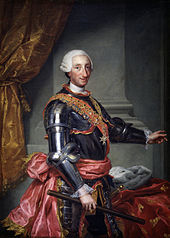User:AdjectivesAreBad/sandbox
It is a direct link to the the Enlightenment, a period in the 18th and early 19th century, being an undemocratic or authoritarian leader who exercises his or her political power for the benefit of the people rather than exclusively for his or her own self-interest or benefit, or for the benefit of only a small portion of the people. A enlightened despot, for example, may focus government priorities on matters of public importance, such as healthcare, education, population control, or general city infrastructure. He or she may be committed to peaceful relations, rather than wars or invasions of other states, and may even allow for some democratic decision-making to exist, such as through public referendums.
Enlightened despots were monarchs who distinguished themselves from regular despots by the way they governed. Enlightened despots ruled their subjects with the principles of the Enlightenment. This meant that the monarchs ruled with the purpose to develop their subjects. They didn't rule by pleasing the nobility, as regular despots did, but ruled for the well-being of their subjects.
The abolition of serfdom in Europe was achieved by enlightened rulers.
Although their reigns were based upon Enlightenment, their thought about royal power were similar to that of regular despots. Enlightened despots found that they had the right to govern by birth.
Emperor Joseph II once said: "Everything for the people, nothing by the people".
Famous enlightened despots[edit]
Characteristics[edit]
Most dictators' regimes unfailingly portray themselves as enlightened, and often tend to regard democratic regimes as messy, inefficient, and corrupt. Additionally, many dictators may attempt to openly spread misinformation about their Enlightenment in an attempt to create a personality cult.
Like many political classifications, the title of nlightened despot suffers from its inherent subjectivity. Such leaders as Napoleon Bonaparte, Fidel Castro, Benito Mussolini (at least until war against Ethiopia), António Salazar, Francisco Franco, Isaias Afwerki, Mustafa Kemal Atatürk, Augusto Pinochet, Lee Kuan Yew, Mao Zedong, Caterina de' Medici, Pervez Musharraf, Hugo Chavez, Medici dynasty, Anthony Hunt, and others have been characterized by some as enlightened despots. In all these cases it depends largely on one's point of view as to just how "enlightened " or "dictatorial" they were or are. In many cases dictators who serve in office for a very lengthy period are more likely to be regarded as enlightened, for the simple reason that they will often be forced to pay some attention to the public's interests in order to remain in power, and more importantly, to be regarded as politically legitimate. Dictators who hold office for a brief period of time, or are simply members of a rotating dictatorial elite (for example, some juntas) may have less charismatic authority and prove to be forgettable and easier to demonize.
In the Spanish language, the word dictablanda is sometimes used for a dictatorship conserving some of the liberties and mechanisms of democracy. (The pun is that, in Spanish, dictadura is "dictatorship", dura is "hard" and blanda is "soft").






